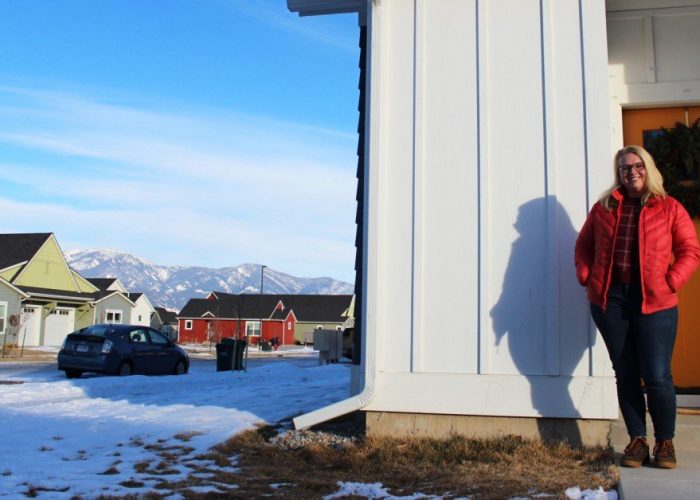Montanas Labor Shortage Is Actually a Housing Shortage
Montana plans to distribute part of the $900 million it received in federal coronavirus relief to help with affordable housing, the Associated Press reports.
Housing costs have increased by more than 20% in the last year in some areas in Montana, with workers saying they cant afford to take low-paying jobs even as wages increase. Next City previously reported on the lack of affordable housing in Bozeman, Montanas fourth-largest city, which is struggling with an influx of tech workers and others who have decided to make working-from-home permanent.
So far, the commission approved a homeowner assistance fund to help homeowners that are struggling to pay mortgages through loans of up to $25,000. The state also hoped to incentivize a return to work by ending federal unemployment benefits, despite reports indicating that cutting these programs does not encourage Americans to look for jobs.
Nevertheless, Montana has started a new program providing workers with $1,200 if they find and keep a new job for at least a month.
Baltimore Law Requires Landlords to Provide Just Cause for Eviction
Baltimores new just cause law went into effect on Monday, requiring landlords to provide reasoning for not renewing a tenants lease, the Baltimore Sun reports.
The bill passed after a series of cases where landlords evicted tenants whose leases had expired without providing a codified reason as to why they did not extend or renew the lease. Since not renewing a lease doesnt count as an eviction (though it still results in a person leaving their home), landlords used the ability to not renew a lease as a loophole around state and federal eviction moratoriums, the Baltimore Sun adds.
Now, Baltimore landlords must allow tenants the chance to renew their leases at least 75 days before it expires. Exceptions to this rule require landlords to provide a good cause for not renewing, including: a substantial breach of lease; the landlord wanting to recover the property for a relative as a primary residence; the landlord wanting to permanently remove the property from the rental market; or the landlord needing to conduct repairs that cannot be done in otherwise occupied properties.
This new protection is critical for residents who are being evicted when their leases expire in the waning months of the pandemic, City Council President Nick J. Mosby told the Baltimore Sun.
Penn Research Suggests that Repairing Homes in Low-Income Neighborhoods Reduces Crime and Improves Health
Research by the University of Pennsylvania finds that investing in homes in historically segregated, low-income, Black and Latino communities leads to reduced crime rates and improvements in health.
The study looked at homes repaired by Philadelphias Basic Systems Repair Program (BSRP), an initiative that repairs structural damage in homes in low-income areas. Researchers concluded that on blocks where at least one home was repaired through this city-funded program, total crime on that block decreased by nearly 22%. As more houses were repaired, crime fell even further.
There is a critical need to invest in the housing stock in cities across the U.S, particularly in majority Black neighborhoods that have not received such investment for far too long, if ever, Vincent Raina PhD, an associate professor of planning and urban economics and the faculty director of the Housing Initiative at Penn said in a statement. This research shows that even small investments in housing stabilization benefit both those homeowners who live in homes that receive support and the blocks and neighborhoods in which they live through crime reduction.
This article is part of Backyard, a newsletter exploring scalable solutions to make housing fairer, more affordable and more environmentally sustainable. Subscribe to our twice-weekly Backyard newsletter.
You Might Also Like The Backyard Email Newsletter
Get reports from Next City’s housing correspondent, Jared Brey, emailed directly to you. Brey will send original reporting that helps you keep up with the latest in community land trusts, public housing, zoning reform, historic preservation, fair housing policies, energy-efficient design, the intersection of healthcare and housing, and more. Subscribe now and never miss a story.
Solcyre (Sol) Burga is an Emma Bowen Foundation Fellow with Next City for summer 2021. Burga is completing her degree in political science and journalism at Rutgers University, with plans to graduate in May of 2022. As a Newark native and immigrant, she hopes to elevate to voices of underrepresented communities in her work.
.(JavaScript must be enabled to view this email address)read more
Housing in Brief: Montana’s Labor Shortage Is Actually a Housing Shortage


